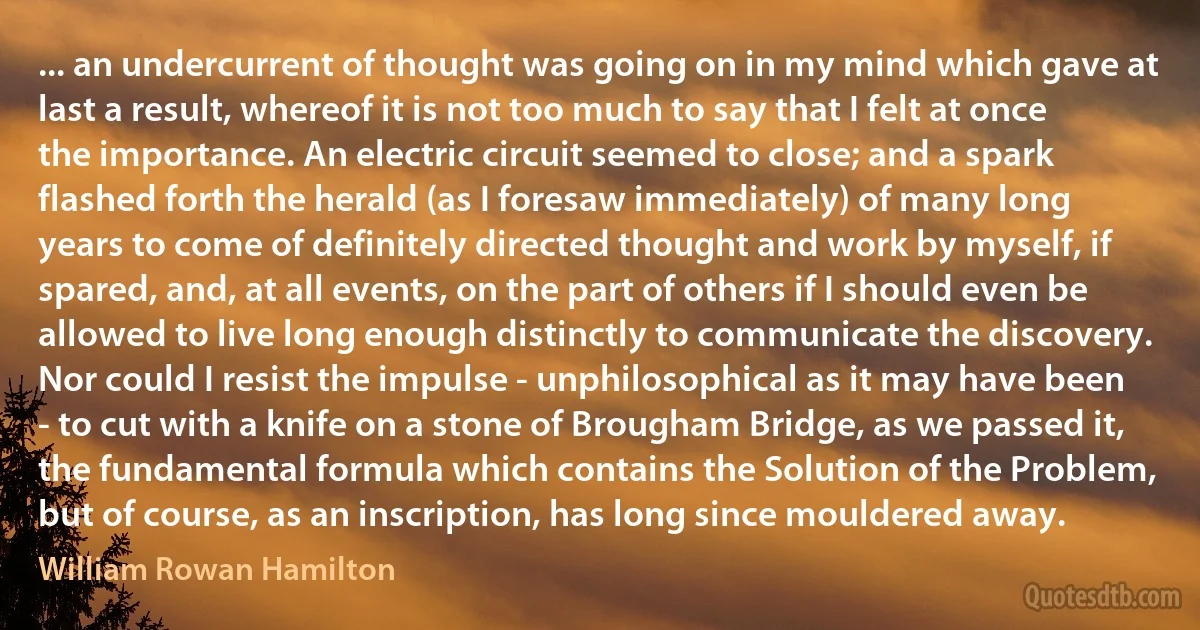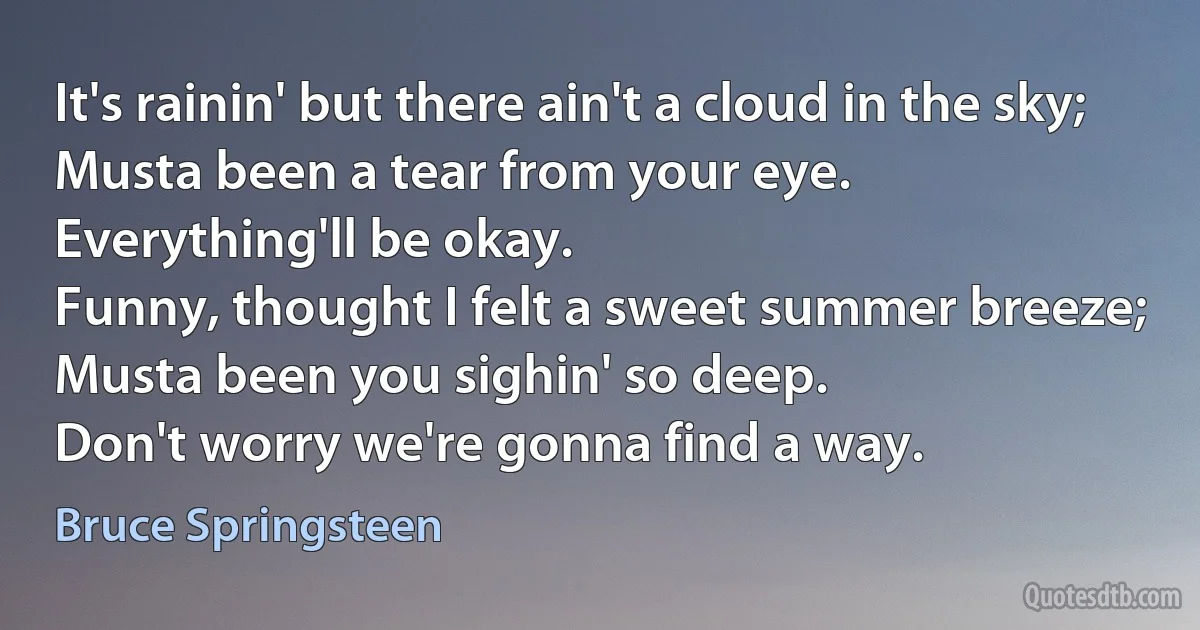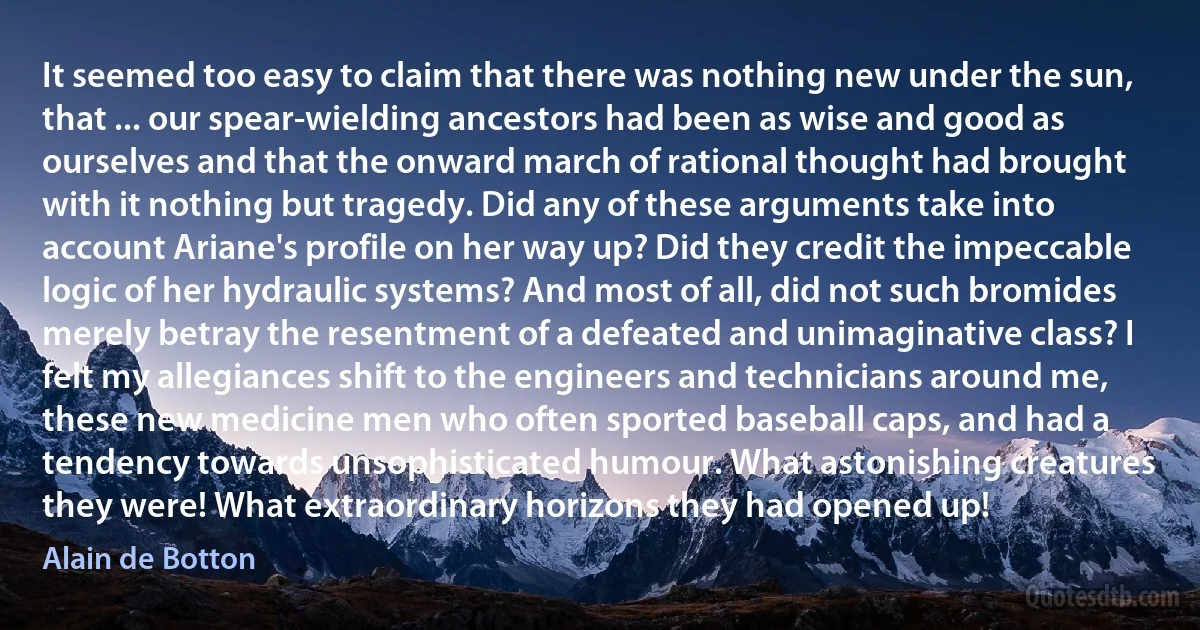Felt Quotes - page 40
My mother was mistrustful of the education system, so it was all right with her if we didn't go to school. She was taking us to Truffaut films, and I was busy getting through a Knut Hamsun book or something, so she felt satisfied we weren't wasting our lives watching The Brady Bunch. Because of where we lived, I would've had to go to Belmont High, so the year I was supposed to start high school I tried to get into the High School for the Performing Arts, which had just opened. I sent them a tape of me playing blues guitar and some short stories I'd written, but they didn't want me.

Beck
We played a gig in the Swiss Alps at a snowboarding convention. Red Bull-this energy sports-fuel drink-sponsored the whole thing. It has some ingredient believed to be bull-testicle extract. We went way off our tour route, had to take two planes and missed a night's sleep. We got up there and there's no snow-it's all mud. You couldn't walk. You'd step and then be up to your knee in mud. So you had several thousand disgruntled snowboarders tanked up to the max on bull-testicle extract. Of course, for some reason, these strapping brutes were made to wait out in the mid and the rain before coming into the tent for the show. When we get up to play, I see this forty-foot gap between us and the audience-they still managed to nail us with empty cans of Red Bull. After a few songs, I wasn't really playing my guitar, I was using it to bay cans back into the crowd of disgruntled sports enthusiasts. It felt like we were A Flock of Seagulls opening for Napalm Death.

Beck
What it talks about is stuff that I've gone through, like, in the past year, which is, you know, a lot, and some of it's good, and some of it's bad, and a lot of it's, like, a big learning experience. And I got to write a lot about that with people that I've worked with before, so I felt completely comfortable.

Hilary Duff
I love the song ["Haters"]. I wrote it, it was my idea. I think at the time I was feeling like I had to talk so much about my personal life because people make accusations and there are lies and rumors constantly. I think that song really just came to me because I was feeling like people are so negative. They love to read what's coming out next on Page Six [of the New York Post] and I just felt like it was appropriate. I also felt like normal girls could relate to that, what with school and how people backstab each other and talk bad about each other and how much petty stuff goes on.

Hilary Duff
The philosophy of nonviolence, which I learned from Dr. Martin Luther King, Jr., during my involvement in the civil rights movement was first responsible for my change in diet. I became a vegetarian in 1965. ... Under the leadership of Dr. King I became totally committed to nonviolence, and I was convinced that nonviolence meant opposition to killing in any form. I felt the commandment "Thou shalt not kill” applied to human beings not only in their dealings with each other-war, lynching, assassination, murder and the like-but in their practice of killing animals for food or sport. Animals and humans suffer and die alike. Violence causes the same pain, the same spilling of blood, the same stench of death, the same arrogant, cruel and brutal taking of life.

Dick Gregory
I think what's happening now is people want to forget. There was Vietnam, there was Watergate, there was Iran – we were beaten, we were hustled, and then we were humiliated. And I think people got a need to feel good about the country they live in. But what's happening, I think, is that that need – which is a good thing – is gettin' manipulated and exploited. And you see the Reagan reelection ads on TV – you know: "It's morning in America." And you say, well, it's not morning in Pittsburgh. It's not morning above 125th Street in New York. It's midnight, and, like, there's a bad moon risin'. And that's why when Reagan mentioned my name in New Jersey, I felt it was another manipulation, and I had to disassociate myself from the president's kind words.

Bruce Springsteen
And we danced all night to a soul fairy band.
And she kissed me just right like only a lonely angel can.
She felt just right just like as sweet as a spirit in the night.
In the night baby don't know what she do to you?
Spirits in the night, in the night.
Stand up now and let her shoot right through you.

Bruce Springsteen
The unremitting division of labour resulted in admirable levels of productivity. The company's success appeared to bear out the principles of efficiency laid down at the turn of the twentieth century by the Italian economist Vilfredo Pareto, who theorized that a society would grow wealthy to the extent that its members forfeited general knowledge in favour of fostering individual ability in narrowly constricted fields. In an ideal Paretan economy, jobs would be ever more finely subdivided to allow for the accumulation of complex skills, which would then be traded among workers. ... But however great the economic advantages of segmenting the elements of an afternoon's work into a range of forty-year-long careers, there was reason to wonder about the unintended side effects of doing so. In particular, one felt tempted to ask ... how meaningful the lives might feel as a result.

Alain de Botton
Babbitt looked up irritably from the comic strips in the Evening Advocate. They composed his favorite literature and art, these illustrated chronicles in which Mr. Mutt hit Mr. Jeff with a rotten egg, and Mother corrected Father's vulgarisms by means of a rolling-pin. With the solemn face of a devotee, breathing heavily through his open mouth, he plodded nightly through every picture, and during the rite he detested interruptions. Furthermore, he felt that on the subject of Shakespeare he wasn't really an authority. Neither the Advocate-Times, the Evening Advocate, nor the Bulletin of the Zenith Chamber of Commerce had ever had an editorial on the matter, and until one of them had spoken he found it hard to form an original opinion.

Sinclair Lewis
The young curate, already pale to the lips, rolled his eyes up until only the whites showed, and began to pray in a trembling, feeble voice. Raised in an ecclesiastical society, where the tenets of the Faith are never argued, having long ago all been decided upon, he had never before been exposed to any difference of opinion on such holy matters. It was, indeed, for him an earth-shaking experience even to be listening to these hideous and pandemonial hallucinations, these nauseously original ideas, each of which gnawed at the roots of his sanity like a voracious worm, until the poor fellow felt his reason began to totter and the foundations of his faith began to shudder and reel.

Lin Carter
I have often thought that the best way to define a mans character would be to seek out the particular mental or moral attitude in which, when it came upon him, he felt himself most deeply and intensely active and alive. At such moments there is a voice inside which speaks and says 'This is the real me'

William James



